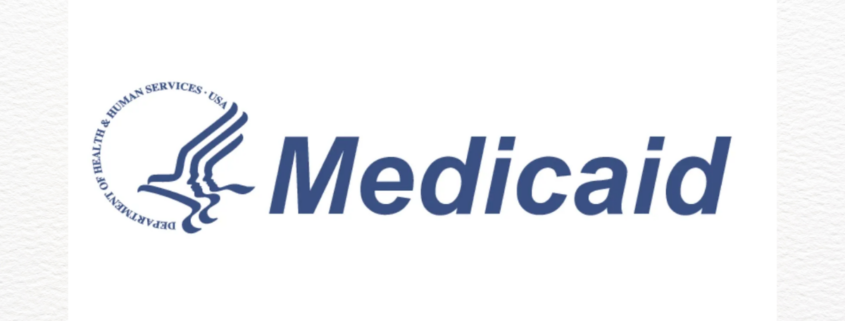What is the Medicaid Trap and How Can You Avoid It?
Planning for long-term care in West Virginia can be overwhelming, especially regarding Medicaid eligibility. The “Medicaid Trap” refers to the financial and legal challenges people face when trying to qualify for Medicaid to cover long-term care costs, often resulting in financial strain or disqualification from benefits. Without proper planning, Medicaid’s strict income and asset limits can lead to significant financial losses, including forced spend-downs and estate recovery after death. Many West Virginia residents are unaware of these challenges until they or a loved one require long-term care, making proactive planning essential to avoid unnecessary financial burdens.
Common Medicaid Planning Pitfalls in West Virginia
Many people in West Virginia make costly mistakes when trying to qualify for Medicaid. Due to the state’s strict eligibility requirements and Medicaid’s complex rules, even well-intentioned financial decisions can lead to delays or disqualification. Below are some of the most common pitfalls residents face:
Failing to Plan Ahead
The five-year look-back rule penalizes asset transfers made within five years of applying for benefits. Many individuals mistakenly believe they can transfer assets at the last minute to meet Medicaid’s financial thresholds. However, if Medicaid determines that assets were transferred improperly, a penalty period may be imposed, delaying access to essential long-term care services. Planning well in advance with the help of an elder law attorney can help avoid these penalties.
Improper Asset Transfers
Gifting assets or transferring property to family members without proper structuring can trigger penalties. Some people assume that transferring ownership of their home or bank accounts to a child or relative will protect their assets, but it may still count these transfers against eligibility. Furthermore, if a transferred asset is later needed to cover expenses, the individual may lose access to it. Proper legal strategies, such as irrevocable trusts, can help protect assets while maintaining eligibility.
Misunderstanding Exempt vs. Countable Assets
Not all assets count toward eligibility, but failing to distinguish between exempt and countable assets can lead to unnecessary disqualification. For example, a primary residence is often exempt if the applicant or their spouse continues to live in it, but additional properties or cash savings may be counted against eligibility. Understanding which assets are protected and how to legally reposition countable assets is key to successful planning.
Neglecting Spousal Protections
If one spouse requires it while the other remains in the community, improper asset structuring can leave the healthy spouse financially vulnerable. Medicaid has specific spousal protection rules, such as the Community Spouse Resource Allowance (CSRA), which allows the non-applicant spouse to retain a portion of the couple’s assets. Without proper planning, a community spouse may be forced to spend down assets unnecessarily, leaving them without adequate financial security.
Overlooking Medicaid Estate Recovery
After the recipient’s death, Medicaid may attempt to recover costs from the estate through the Medicaid Estate Recovery Program (MERP). This means that assets, including a family home, could be claimed by the state to recoup long-term care expenses. Many families are unaware of this potential recovery and do not take the necessary steps to protect their assets. Utilizing estate planning tools such as life estates or irrevocable trusts can help prevent Medicaid from reclaiming assets after death.
Failing to Document Caregiver Agreements
In some cases, family members provide informal care for elderly loved ones without documenting a formal caregiver agreement. If Medicaid later reviews financial transactions and finds that a family caregiver was compensated without a written agreement in place, those payments could be considered gifts, resulting in a penalty. Establishing a formal caregiver contract ensures that payments for care services are legitimate and do not interfere with Medicaid eligibility.
Not Considering Medicaid-Compliant Annuities
Many West Virginia residents who have excess assets mistakenly believe they have no choice but to spend them down completely. However, Medicaid-compliant annuities allow individuals to convert excess assets into an income stream for a spouse or other dependent, preserving financial stability while maintaining eligibility. Without understanding these financial tools, many applicants end up unnecessarily depleting their savings.
Each of these pitfalls can lead to financial distress, making it crucial for individuals and families in West Virginia to seek legal guidance early. A well-informed Medicaid plan can ensure access to benefits while protecting assets for spouses and future generations.
Legal Strategies to Protect Assets and Qualify for Medicaid in West Virginia
Proper planning can help you qualify for Medicaid while preserving assets for your spouse or heirs. Here are some key legal strategies:
Establishing an Irrevocable Medicaid Trust
An Irrevocable Medicaid Trust allows individuals to transfer assets while still maintaining Medicaid eligibility. Assets placed in this trust at least five years before applying for Medicaid are not counted as available resources. This type of trust helps protect assets from Medicaid estate recovery while allowing individuals to preserve wealth for their heirs. Properly structuring this trust with an elder law attorney ensures that assets are managed according to Medicaid regulations.
Utilizing Medicaid-Compliant Annuities
A Medicaid-compliant annuity converts assets into an income stream that does not count toward Medicaid eligibility limits. This is particularly beneficial for married couples when one spouse requires nursing home care. These annuities must meet specific criteria, such as being irrevocable and non-transferable, to comply with Medicaid rules. Choosing the right annuity ensures that excess assets are properly structured without jeopardizing eligibility.
Implementing a Strategic Spend-Down Plan
A Medicaid spend-down strategy helps reduce countable assets by paying off debts, prepaying funeral expenses, making home modifications, or purchasing exempt assets like a car. Common spend-down techniques include:
- Making necessary home repairs or modifications to accommodate aging needs
- Paying off outstanding medical expenses or debts
- Purchasing medical equipment or home care services
- Investing in a Medicaid-exempt burial plan
Working with a Medicaid planning attorney ensures that your spend-down strategy follows Medicaid regulations and maximizes financial benefits.
Creating a Life Estate for Your Home
A life estate allows individuals to retain the right to live in their home while legally transferring ownership to heirs, reducing Medicaid’s ability to recover costs after death. With a life estate, you maintain the right to reside in your home for life, and upon passing, the property automatically transfers to the designated heirs. This strategy helps avoid probate and limits Medicaid estate recovery claims.
Leveraging Spousal Protection Rules
Medicaid allows a community spouse (the spouse who remains at home) to keep a certain portion of the couple’s assets. Proper asset structuring ensures the non-applicant spouse is financially secure. Key Medicaid spousal protection strategies include:
- Utilizing the Community Spouse Resource Allowance (CSRA) to retain assets
- Allocating income through a Medicaid-compliant annuity for the community spouse
- Implementing spousal refusal strategies when applicable
These strategies ensure that the healthy spouse is not left impoverished due to the other spouse’s Medicaid needs.
Utilizing Pooled Trusts for Medicaid Eligibility
For individuals with disabilities or special needs, pooled trusts allow excess income to be legally set aside while still maintaining Medicaid eligibility. These trusts, managed by nonprofit organizations, allow individuals to fund their care while preserving Medicaid benefits. A pooled trust is particularly beneficial for individuals with disabilities who need long-term care but do not want to disqualify themselves from Medicaid coverage.
Transferring Assets to a Caregiver Child
Under certain circumstances, Medicaid allows a parent to transfer their home to a caregiver child without penalty. If an adult child has lived in the parent’s home for at least two years before the parent enters a nursing home and provided substantial caregiving assistance, Medicaid may allow the home to be transferred to the child without triggering the five-year look-back penalty. Proper documentation and legal guidance are essential to ensure compliance with Medicaid’s caregiver exemption rules.
Establishing a Personal Care Agreement
A personal care agreement allows family members to be compensated for providing care services while ensuring that payments do not count as gifts that could trigger Medicaid penalties. These agreements outline the type of care provided, payment terms, and the expected duration of care. Establishing a formal caregiver contract protects against Medicaid penalties and ensures that caregivers receive fair compensation.
Frequently Asked Questions About Medicaid Planning in West Virginia
Can I Give Away My Assets to Qualify for Medicaid?
Medicaid has a five-year look-back period. Giving away assets within this period can result in a penalty that delays eligibility.
Will Medicaid Take My Home After I Die?
Medicaid’s Estate Recovery Program (MERP) may attempt to recover costs from your estate after death. Proper planning, such as a life estate or irrevocable trust, can help protect your home.
What If I Need Medicaid Soon but Haven’t Planned Ahead?
Even if you haven’t planned in advance, legal strategies like Medicaid-compliant annuities and spend-down techniques can help you qualify without losing everything.
How Does the Medicaid Look-Back Rule Work in West Virginia?
The look-back rule in West Virginia reviews financial transactions within the past five years to ensure no improper asset transfers were made. Violations can result in disqualification or delays in coverage.
Hewitt Law PLLC: Protecting Your Future with Thoughtful Medicaid Planning in West Virginia
Avoiding the Medicaid Trap in West Virginia requires proactive planning and a solid understanding of Medicaid’s rules. With the right legal strategies, you can qualify for benefits while preserving assets for yourself and your loved ones. If you or a family member need assistance with Medicaid planning, Hewitt Law PLLC is here to help. Contact our experienced elder law attorneys in West Virginia today for a consultation and take the first step toward financial security.













Leave a Reply
Want to join the discussion?Feel free to contribute!